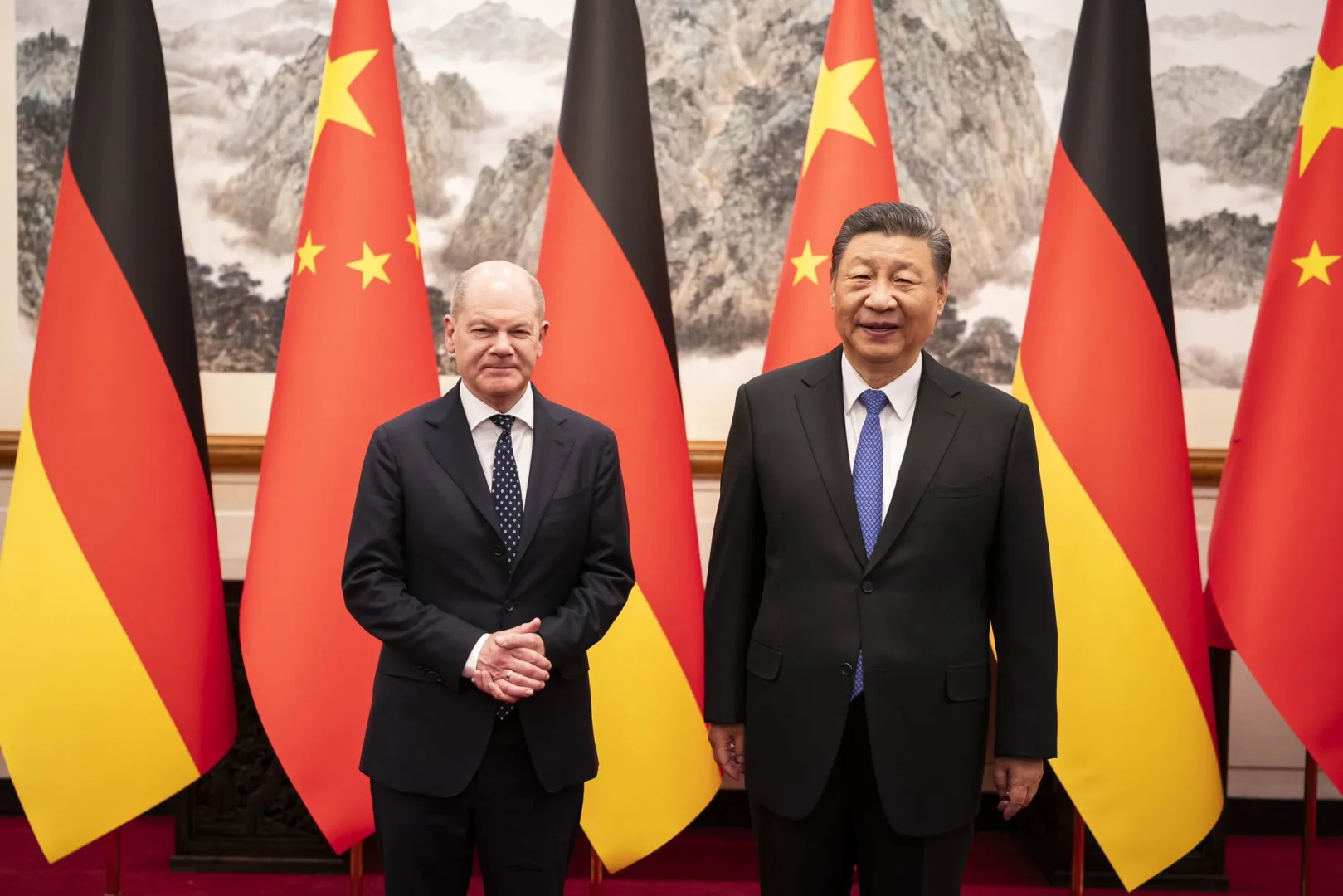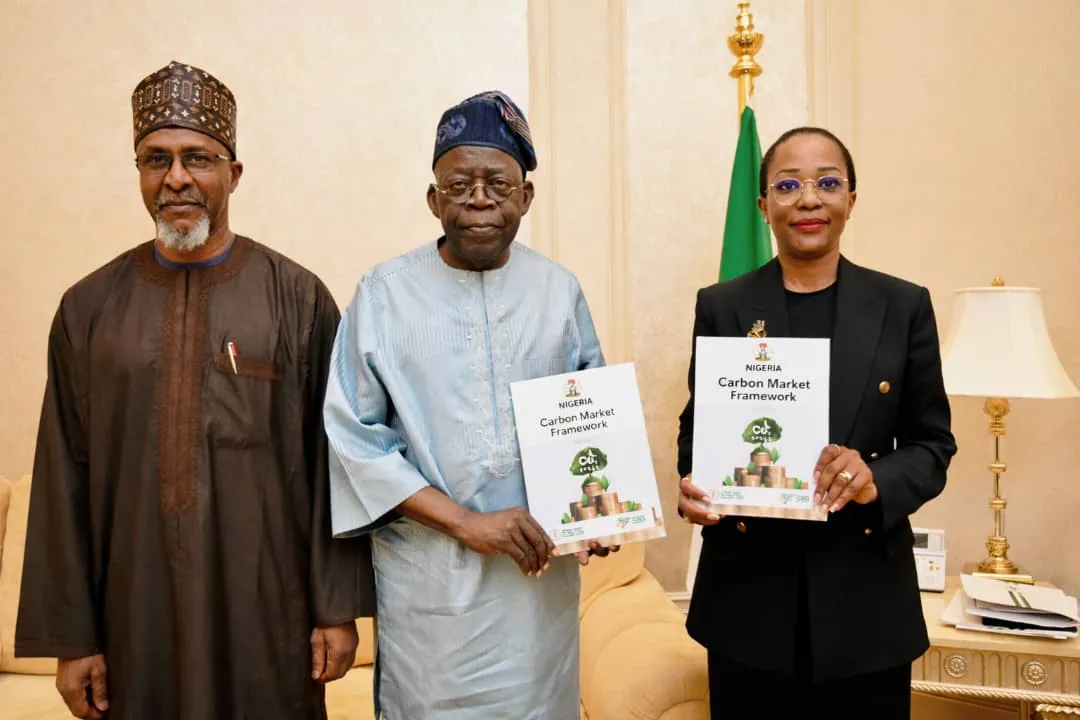In an era marked by shifting global trade dynamics and escalating geopolitical tensions, German businesses are charting a new course by deepening their investments in China. As tariffs from the United States continue to disrupt established export channels, Germany’s “Hidden Champions” and leading industrial players are recalibrating their strategies, seeking to leverage China’s open market, robust technological advancements, and promising growth sectors. Recent high-profile visits, strategic speeches, and robust investment plans underscore a broader trend: amid uncertainty in traditional markets, German companies are increasingly banking on China as a cornerstone of their future expansion.
Repositioning in Response to Tariff Challenges
Hermann Simon, a celebrated German economist and the architect of the “Hidden Champions” theory, has emerged as one of the most influential voices advocating for this pivot. During a high-profile visit to Bozhou in East China’s Anhui province on March 25, 2025, Simon emphasized the need for German enterprises to diversify their market presence in light of escalating U.S. tariffs. “With tariffs coming from America, it’s more difficult to export into America and we now have to intensify our trading relations between Europe and China,” Simon remarked in an exclusive interview. His message resonated deeply among industry leaders who view the tariffs not as an insurmountable barrier but as a catalyst to accelerate diversification strategies.
The U.S. tariffs, which have disrupted supply chains and squeezed profit margins for decades-long trading partners, now force German companies to seek new markets. Losing market share in America, as Simon warned, could have cascading impacts on revenue and global competitiveness. Consequently, many firms have shifted their focus to China—a nation whose commitment to free trade and high-level market openness is seen as a beacon for future growth.
The Strategic Chinese Advantage
China’s economic policies have long emphasized market liberalization and technological innovation. Over the past few years, China has bolstered its commitment to foreign investors by ensuring equal treatment for foreign-funded enterprises and establishing an environment that fosters reinvestment. The latest government work report signals a renewed vigor in promoting foreign direct investment (FDI), with a remarkable 59,080 new foreign-invested enterprises established in 2024—a nearly 10 percent increase compared to the previous year.
The strategic allure of China extends beyond mere market access. German companies are particularly attracted by China’s leadership in emerging sectors, including new energy vehicles (NEVs), artificial intelligence (AI), and advanced manufacturing. The Chinese market is not only vast but also technologically advanced, setting benchmarks in several fields that German firms have historically led. The combination of decades of engineering expertise and a rapid pace of software innovation creates a fertile environment for Sino-German collaboration.
Insights from the Field: Delegations and On-Site Visits
From March 23 to 25, 2025, a delegation led by Hermann Simon, comprising over 20 representatives from German enterprises and consulting institutions, embarked on a tour of Anhui province. Their itinerary included visits to state-of-the-art NEV plants, bustling traditional Chinese medicinal herb markets, and expansive auto parts industrial parks. The objective was clear: to identify and capitalize on emerging opportunities that could fuel Sino-German collaboration in an increasingly competitive global marketplace.
One of the highlights of the visit was the tour of new energy vehicle manufacturing facilities. The Chinese NEV sector has experienced a meteoric rise in recent years, driven by strong government incentives and a burgeoning consumer base. German automotive experts were particularly impressed by the quality and technological sophistication of Chinese electric vehicles. Michael Bose, head of the international department of Automotive Cluster Berlin-Brandenburg, noted that Chinese electric vehicles now not only meet German quality standards but also incorporate innovative intelligent connected vehicle (ICV) technologies. Bose’s observations underline a significant shift in the global automotive landscape, where learning and collaboration have become key drivers of progress.
Success Stories and Future Plans
Helmut Heuser, general manager of Wurth Electronic (Shenyang) Co Ltd, exemplifies the deepening ties between German companies and the Chinese market. Having lived in China for over 30 years, Heuser has witnessed firsthand the transformative potential of close cooperation. “We are investing more in China in production localization and project management, and I think there will be a lot of investment in the next 10 years here to stay close to our customers,” he asserted. For companies like Wurth Electronic, the benefits of localizing production are multifold: reduced logistics costs, better market insight, and enhanced customer relations.
In contrast, Klaus Benecke, the general manager of Benecke System, represents a new generation of German executives eager to harness China’s rapid advancements in AI and software development. Fascinated by breakthroughs such as DeepSeek and other homegrown AI solutions, Benecke is enthusiastic about integrating these technologies into his company’s data model. “We developed a data model, and I hope that we can now speed it up with Chinese developers,” he explained. Benecke’s forward-looking perspective highlights the broader trend among German firms: the pursuit of high-tech synergies that can drive innovation and operational efficiency.
The Broader Economic Landscape
The evolving dynamics of global trade are not only reshaping the strategies of individual companies but also altering the contours of international economic relations. The current global uncertainties—ranging from trade wars to political tensions—have compelled many Western economies to reassess their reliance on traditional markets like the United States. In this context, China’s proactive approach to creating a conducive investment climate stands out as a stabilizing force.
Recent economic indicators point to a sustained commitment from China to maintain an open, competitive market environment. According to statements from Chinese government officials, including foreign ministry spokesperson Mao Ning, China remains steadfast in its promise to welcome foreign investment. “No matter how the external environment changes, China has always fulfilled its commitment to high-level opening up,” Mao Ning said. This message not only reassures current investors but also invites new entrants to share in the country’s long-term growth prospects.
The reaffirmation of China’s investment-friendly policies comes at a time when global FDI trends are becoming increasingly volatile. Amid political and economic uncertainties, investors are looking for safe havens where policy predictability and market potential intersect. China, with its strategic economic reforms, robust infrastructure development, and expansive domestic market, offers precisely that combination. The surge in foreign-invested enterprises over the past year underscores this trend, as companies from diverse sectors—from automotive to high technology—vie for a share of China’s burgeoning growth.
Navigating the Risks and Rewards
While the prospects in China are undeniably attractive, German companies are also mindful of the challenges that come with operating in a foreign market. Navigating regulatory complexities, cultural differences, and local market dynamics requires a nuanced approach. Yet, for many enterprises, the benefits far outweigh the risks.
One of the primary advantages for German firms is the opportunity to localize production and supply chains. By establishing or expanding production facilities in China, companies can mitigate the risks associated with long-distance logistics and tariff-induced cost hikes. Moreover, localization enables firms to be more responsive to market fluctuations and consumer preferences. The close proximity to a vast and dynamic consumer base means that innovations can be rapidly tested, refined, and scaled, creating a competitive edge in a rapidly evolving market.
German enterprises also bring with them a legacy of quality and engineering excellence—a reputation that resonates well with Chinese consumers and business partners alike. The collaborative approach between German efficiency and Chinese innovation is proving to be a potent formula for success. For instance, the strategic alliance between German auto parts manufacturers and Chinese NEV producers is already yielding promising results. The integration of German precision engineering with Chinese manufacturing agility is not only enhancing product quality but also accelerating time-to-market for new innovations.
Technological Synergies: AI, Automation, and Beyond
Beyond traditional manufacturing, the realm of artificial intelligence and automation offers perhaps the most compelling case for deeper Sino-German collaboration. As companies like Benecke System explore ways to enhance their data models using Chinese AI technologies, a new frontier of innovation is emerging. China’s rapid advancements in AI, coupled with its robust digital infrastructure, are creating a conducive environment for groundbreaking research and development.
The potential for technological synergy extends to various sectors, including automotive, industrial automation, and even consumer electronics. By leveraging China’s expertise in AI and machine learning, German companies can develop smarter, more efficient systems that revolutionize production processes and product offerings. This collaborative spirit is not just about technology transfer; it’s about co-creating solutions that can redefine entire industries.
In the automotive sector, for example, the fusion of German mechanical engineering with Chinese software innovation is transforming the landscape of electric and autonomous vehicles. Experts note that Chinese electric vehicles, which once lagged behind their European counterparts, are now setting new benchmarks in quality and innovation. This evolution has been driven by substantial investments in research and development, a commitment to sustainable practices, and a willingness to embrace cutting-edge technologies.
A Win-Win Partnership
The recurring theme in these developments is one of mutual benefit. German companies are not merely exporting goods and services to China; they are investing in local capabilities, forging partnerships, and contributing to the country’s broader industrial and technological ecosystem. This approach reflects a win-win paradigm where both sides stand to gain from enhanced cooperation and shared expertise.
For German firms, deepening ties with China represents a strategic hedge against the uncertainties of global trade. It also opens up new avenues for growth in sectors that are poised to drive the future of global commerce, from renewable energy and electric vehicles to AI and high-tech manufacturing. For China, attracting sustained investment from established Western companies reinforces its status as a global innovation hub and bolsters its economic resilience.
Looking Ahead: The Next Decade of Collaboration
The road ahead for Sino-German business relations is laden with promise. As global economic uncertainties persist, the need for robust, diversified, and resilient investment strategies becomes even more critical. German enterprises are clearly betting on China not just as an alternative market, but as a long-term partner in innovation and growth.
In the coming decade, we can expect to see a surge in collaborative ventures that blend German precision with Chinese dynamism. Joint research and development projects, cross-border supply chain integrations, and strategic investments in emerging technologies will likely form the cornerstone of this evolving relationship. Moreover, as Chinese domestic markets continue to expand, German companies will be uniquely positioned to capture new consumer segments and drive technological breakthroughs that have a global impact.
Government policies on both sides will play a pivotal role in shaping this future. Chinese regulatory bodies have demonstrated a keen interest in attracting high-quality foreign investment, while European policymakers are increasingly aware of the need to support their industries through international collaboration. The convergence of supportive policies, mutual economic interests, and technological imperatives creates an ideal environment for enduring partnerships.
Balancing Innovation and Tradition
A noteworthy aspect of this evolving relationship is the balance between innovation and tradition. German companies, known for their meticulous engineering and rigorous quality standards, are now adapting to a landscape where agility and digital transformation are paramount. On the other hand, China’s rapid modernization is complemented by a rich history of industrial prowess and a deep understanding of global market trends.
This balance is evident in sectors such as the automotive industry, where decades of German expertise in mechanical engineering are merging with China’s pioneering efforts in intelligent connectivity and electric propulsion. The result is a new generation of vehicles that not only embody the best of both worlds but also set new standards for efficiency, sustainability, and performance.
Cultural Exchange and Knowledge Sharing
Another dimension that cannot be overlooked is the cultural and intellectual exchange that accompanies increased economic collaboration. Business trips, on-site visits, and joint conferences facilitate not only the transfer of technology and capital but also the sharing of best practices and strategic insights. When industry veterans like Helmut Heuser share their extensive local knowledge and experiences, they contribute to a broader understanding of how global markets can integrate to create mutually beneficial outcomes.
Hermann Simon’s advocacy for stronger Sino-German ties is rooted in this belief that international business is as much about relationships as it is about transactions. The collaborative spirit fostered during visits to regions like Anhui province is a testament to the power of cross-cultural dialogue. These interactions not only build trust and facilitate smoother operations but also pave the way for innovative solutions that address the challenges of a rapidly changing global landscape.
Industry Impacts and Market Forecasts
Economic analysts are closely monitoring the ripple effects of this strategic pivot. With German enterprises ramping up investments in China, several industry sectors are expected to undergo significant transformation. For instance, the automotive sector is anticipated to see a closer integration of production and R&D processes between German suppliers and Chinese manufacturers. This collaboration is expected to accelerate the development of next-generation vehicles, thereby enhancing competitiveness in global markets.
Similarly, in the field of renewable energy and sustainability, German companies are poised to contribute their expertise in precision engineering and energy efficiency to China’s ambitious environmental goals. Joint projects focusing on smart grid technologies, battery innovations, and sustainable manufacturing practices are likely to become more common, further solidifying the economic ties between the two nations.
Market forecasts suggest that this surge in investment will not only benefit the participating companies but will also have broader economic implications. Increased capital flows, technology transfers, and joint ventures are projected to stimulate employment, drive innovation, and enhance overall economic resilience. As global supply chains become more interconnected, the Sino-German partnership is emerging as a bellwether for future trends in international trade and investment.
Conclusion
The dynamic interplay of global uncertainties and emerging opportunities has set the stage for a significant realignment in international trade strategies. German enterprises, facing headwinds from rising U.S. tariffs and a shifting geopolitical landscape, are turning to China as a reliable partner for sustained growth. The comprehensive strategy being embraced—combining production localization, technological collaboration, and an unwavering commitment to innovation—underscores a long-term vision that transcends short-term challenges.
As German “hidden champions” and industry leaders deepen their engagement with China, they are not only safeguarding their market positions but also contributing to a broader narrative of global economic integration. In this evolving partnership, both sides stand to gain—through shared expertise, increased investment, and the creation of new technological paradigms that promise to redefine the future of industry.
The next decade will likely witness an even more robust framework for Sino-German collaboration, one that balances the imperatives of innovation with the enduring values of quality and precision. For a world marked by volatility and rapid change, such partnerships offer a roadmap to stability and sustainable growth. As governments, corporations, and innovators work hand in hand, the spirit of cooperation that has long defined German business acumen finds a natural ally in China’s dynamic economic landscape.
Ultimately, the story of German enterprises doubling down on China investment is one of resilience, adaptation, and forward-thinking. It serves as a reminder that in a globally interconnected economy, the willingness to embrace change and seek out new opportunities is not just a business strategy—it is a prerequisite for survival and success in the modern world.
Ready to take your career to the next level? Join our dynamic courses: ACCA, HESI A2, ATI TEAS 7 , HESI EXIT , NCLEX – RN and NCLEX – PN, Financial Literacy!🌟 Dive into a world of opportunities and empower yourself for success. Explore more at Serrari Ed and start your exciting journey today! ✨
Photo source: Google
By: Montel Kamau
Serrari Financial Analyst
28th March, 2025
Article, Financial and News Disclaimer
The Value of a Financial Advisor
While this article offers valuable insights, it is essential to recognize that personal finance can be highly complex and unique to each individual. A financial advisor provides professional expertise and personalized guidance to help you make well-informed decisions tailored to your specific circumstances and goals.
Beyond offering knowledge, a financial advisor serves as a trusted partner to help you stay disciplined, avoid common pitfalls, and remain focused on your long-term objectives. Their perspective and experience can complement your own efforts, enhancing your financial well-being and ensuring a more confident approach to managing your finances.
Disclaimer: This article is for informational purposes only and does not constitute financial advice. Readers are encouraged to consult a licensed financial advisor to obtain guidance specific to their financial situation.
Article and News Disclaimer
The information provided on www.serrarigroup.com is for general informational purposes only. While we strive to keep the information up to date and accurate, we make no representations or warranties of any kind, express or implied, about the completeness, accuracy, reliability, suitability, or availability with respect to the website or the information, products, services, or related graphics contained on the website for any purpose. Any reliance you place on such information is therefore strictly at your own risk.
www.serrarigroup.com is not responsible for any errors or omissions, or for the results obtained from the use of this information. All information on the website is provided on an as-is basis, with no guarantee of completeness, accuracy, timeliness, or of the results obtained from the use of this information, and without warranty of any kind, express or implied, including but not limited to warranties of performance, merchantability, and fitness for a particular purpose.
In no event will www.serrarigroup.com be liable to you or anyone else for any decision made or action taken in reliance on the information provided on the website or for any consequential, special, or similar damages, even if advised of the possibility of such damages.
The articles, news, and information presented on www.serrarigroup.com reflect the opinions of the respective authors and contributors and do not necessarily represent the views of the website or its management. Any views or opinions expressed are solely those of the individual authors and do not represent the website's views or opinions as a whole.
The content on www.serrarigroup.com may include links to external websites, which are provided for convenience and informational purposes only. We have no control over the nature, content, and availability of those sites. The inclusion of any links does not necessarily imply a recommendation or endorsement of the views expressed within them.
Every effort is made to keep the website up and running smoothly. However, www.serrarigroup.com takes no responsibility for, and will not be liable for, the website being temporarily unavailable due to technical issues beyond our control.
Please note that laws, regulations, and information can change rapidly, and we advise you to conduct further research and seek professional advice when necessary.
By using www.serrarigroup.com, you agree to this disclaimer and its terms. If you do not agree with this disclaimer, please do not use the website.
www.serrarigroup.com, reserves the right to update, modify, or remove any part of this disclaimer without prior notice. It is your responsibility to review this disclaimer periodically for changes.
Serrari Group 2025
















